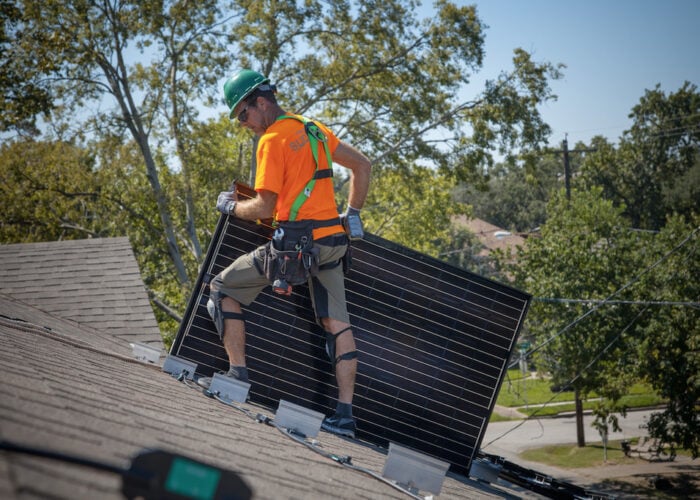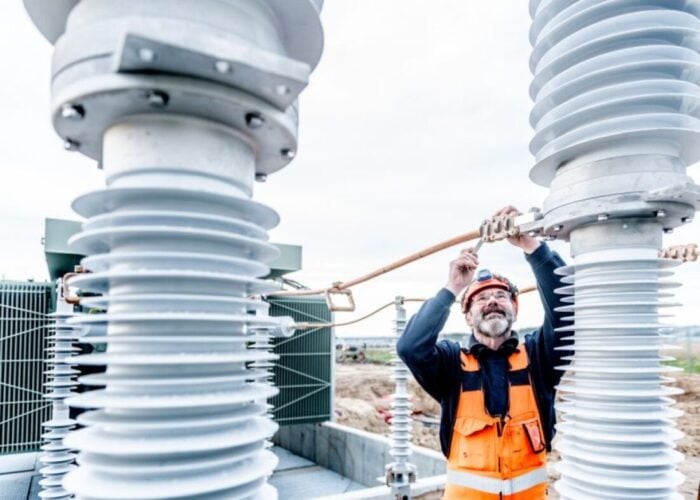Panasonic has passed TÜV Rheinland’s salt mist corrosion testing for its latest photovoltaic (PV) module type, the manufacturer announced on Tuesday.
The tests were applied to Panasonic’s HIT modules, VBHN245SJ25 and VBHN240SJ25. The upgraded modules were launched at the beginning of 2014, with the company citing a conversion efficiency of 19.4%, aimed at providing an improvement from the company’s previously available modules in overall operational performance, notably for residential rooftop markets. The solar cells in a HIT module are made of a mono thin crystalline silicon wafer surrounded by ultra thin layers of amorphous silicon.
Unlock unlimited access for 12 whole months of distinctive global analysis
Photovoltaics International is now included.
- Regular insight and analysis of the industry’s biggest developments
- In-depth interviews with the industry’s leading figures
- Unlimited digital access to the PV Tech Power journal catalogue
- Unlimited digital access to the Photovoltaics International journal catalogue
- Access to more than 1,000 technical papers
- Discounts on Solar Media’s portfolio of events, in-person and virtual
TUV Rheinland applied the highest level of stress – severity six – available under test conditions. The modules were intensively salt sprayed and put under damp storage conditions for eight weeks. High concentration of salt and high levels of humidity could corrode PV module components including the frame, junction box, and glass, causing lower module power output. Testing across the simulated lifetime of the module, TÜV Rheinland therefore subjected it to conditions similar to coastal and salt-laden environments.
In addition, Panasonic claims that its modules are resistant to long-term degradation and provide “maximum suppression of thermal and mechanical stress” in a way that is “unparalleled” in the industry, thus increasing their reliability. Commenting on the latest test results, Daniel Roca, Panasonic Eco Solutions Europe’s UK manager, said reliability is a “key attribute” of the company’s technology.
Yesterday, PV Tech reported that Panasonic had noted an increase in solar module sales for the second quarter of its current fiscal year, contributing to the Japan-headquartered multi-national company’s first net cash gain for five years.







